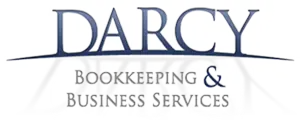


Debt taxation refers to how borrowed funds, such as loans, credit lines, or bonds, are treated under the tax system. For business owners, understanding your tax obligations regarding business debt is essential. With the right approach, you can manage your debt and tax liability to maximise benefits. In this article, we’ll break down the tax applications of business debt and offer practical tips to optimise your tax position and help you steer clear of costly mistakes.
Businesses use various types of debt to fund operations and investments. Common forms of business debt include loans, credit lines, and bonds. Here’s a simple breakdown:
When your business borrows a set amount of money, usually from a bank, to pay for big expenses like buying equipment, vehicles, or property. You must agree to pay it back over time with interest.

Also known as lines of credit, are used to cover short-term expenses or unexpected costs. It’s an agreement with a lender (like a bank) that allows a business to borrow money as needed, up to a set limit. Think of it like a credit card for your business. You don’t have to take all the money at once—you can borrow small amounts whenever you need them. You only pay interest on the amount you actually use. Once you repay what you borrowed, that amount becomes available to borrow again.
Bonds are a way for businesses, especially larger ones, to raise money from investors instead of borrowing from a bank. The business gets the money right away, and in return, it promises to pay back the principal on a specific date in the future. In the meantime, the business pays regular interest to the investors as a thank-you for lending the money. Bonds can be a good way to raise large amounts of money for big projects. It's often cheaper for big companies to issue bonds than to take out a large loan from a bank.
It’s important to be aware that not all debt qualifies for tax deductions. Incorrectly claiming deductions can result in legal troubles and penalties.
To legally claim interest payments as deductible, the debt must meet specific criteria set by the Australian Taxation Office (ATO). The key requirement is that the loan or credit must be directly tied to business-related purposes. For example, interest on a loan used to purchase business equipment, such as machinery or tools, would generally be tax-deductible. A credit card used for personal shopping would not qualify for deductions.

Business owners must be careful to separate business and personal expenses. While mixed-use loans—where funds are used for both personal and business purposes— do exist, they require careful documentation to ensure that only the business-related portion is claimed as a deduction. You must be sure that your deductions fit the ATO’s criteria in order to be compliant. It also helps to maximise your tax benefits and minimise liability.
Always seek professional advice if you're unsure about what qualifies as a deductible.
Debt, when used strategically, can reduce your tax liability and improve your business’s financial health.
By understanding how to leverage debt properly, you can lower taxable income, reinvest in your business, and create long-term benefits.
Always keep business debt separate from personal finances. This ensures clear tax reporting and allows you to claim eligible deductions.
Before taking on debt, confirm that the interest payments are tax-deductible. Expenses related to business loans, equipment financing, or commercial property are typically eligible.
Use debt for assets that generate income or help grow your business. This not only reduces your tax burden but also improves your long-term financial position.
Borrow strategically before the end of the financial year to maximise deductions for the current tax period.
Work with a tax advisor or accountant to optimise deductions and ensure compliance with tax regulations.
While debt taxation can be good for business, it also comes with risks if you’re not careful. Mismanaging debt-related expenses can result in compliance issues, penalties, or even audits from the ATO. Over-reliance on debt can also strain cash flow, making it harder to meet financial obligations. Many business owners also experience stress and anxiety when it comes to debt. This can affect their decision-making skills and lead to further financial missteps.

Tax laws can be complicated and change regularly. Tax consultants and accountants stay on top of these changes and can ensure your business remains compliant and avoids penalties.
Accountants provide tailored advice for managing business loans and taxes. Professionals can identify deductions, credits, and strategies you might miss. Accountants assess your unique business situation and offer personalised advice.
Outsourcing tax-related tasks frees up your time, allowing you to focus on growing your business instead of dealing with numbers.
Debt is money borrowed to fund business operations or growth. Understanding tax-deductible debt and the tax implications of business debt helps optimise finances and avoid penalties.
Business owners are typically not personally liable for company debts unless they’ve provided personal guarantees or are sole traders.
The ATO doesn’t forgive tax debt outright but may offer payment plans or hardship arrangements for struggling businesses.
No. In companies, liability is limited, but sole traders and partnerships may face personal liability for business debts.
Managing business debt for tax purposes can save money and support growth, but it also requires careful planning and compliance. However, debt taxation can be complex, and missteps may lead to penalties or audits. Consulting with experienced tax professionals ensures you can maximise deductions and maintain healthy cash flow.
Take control of your financial future today by implementing these strategies and reaching out to our team at Darcy Bookkeeping and Business Services or call us on 1300 728 875.
